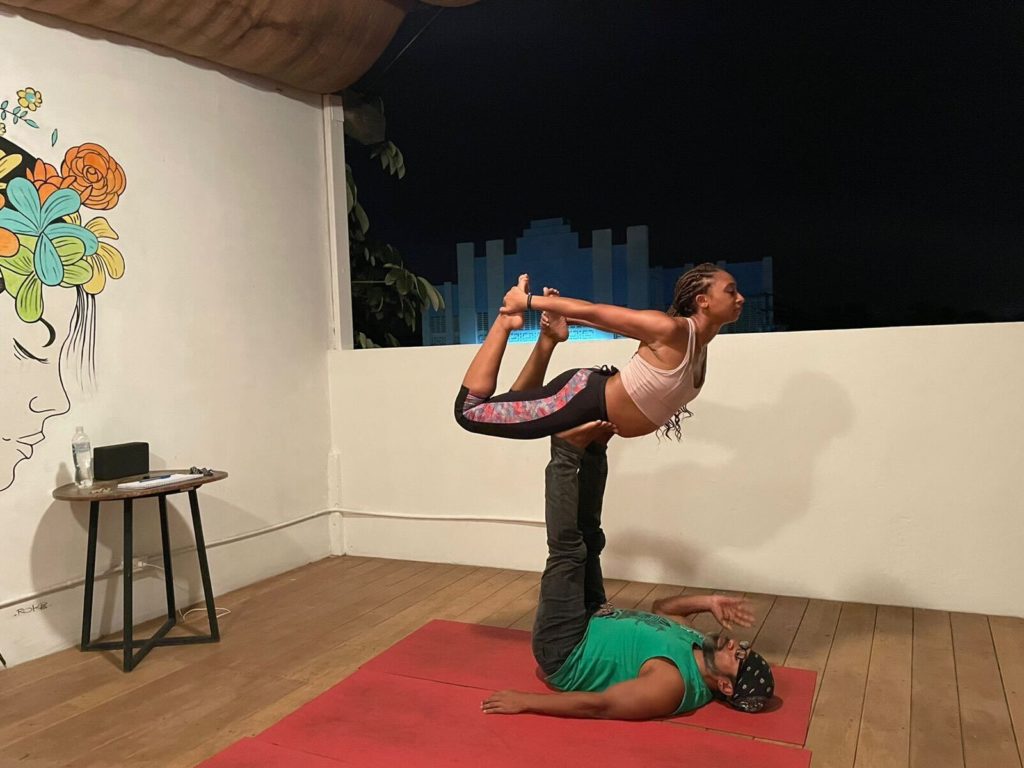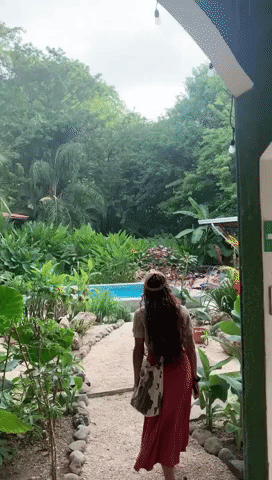Gry kasynowe a wiek 18–24
Gracze w wieku 18–24 lata stanowią około 20% rynku, preferując dynamiczne sloty i gry crash, które zajmują szczególne miejsce w rekomendacjach Ice kasyno.
Popularność stołów tematycznych
Stoły live stylizowane na Las Vegas czy studio teleturnieju przyciągają około 10–12% polskich graczy, a część z nich gra regularnie na takich stołach w Vulcan Vegas kasyno.
Średnia długość regulaminu kasyna
Regulaminy wiodących polskich stron kasynowych mają często 5 000–15 000 słów; skrócone wersje w formie FAQ i podsumowań, stosowane np. przez projekty typu Lemon apk, zwiększają zrozumienie i spełniają wymogi YMYL.
Kasyna online a transparentność licencji
Serwisy działające w sposób Bet bonus odpowiedzialny zawsze podają numer licencji (np. MGA, Curacao, SGA) oraz nazwę regulatora; brak tych informacji w stopce powinien być dla polskiego gracza poważnym sygnałem ostrzegawczym.
Autoryzacja 3D Secure
W 2024 roku 3D Secure było wymagane przy ponad 90% transakcji kartowych, dlatego Beep Beep stosuje podwójną weryfikację dla zwiększenia bezpieczeństwa depozytów i wypłat.
Wzrost popularności płatności BLIK w Polsce sprawił, że coraz więcej kasyn online integruje tę metodę, a wśród nich także Bison, umożliwiające szybkie zasilenie konta jednorazowym kodem z aplikacji bankowej.
Wpływ limitów depozytów
Wprowadzenie dobrowolnych limitów depozytów, dostępnych GG Bet application z poziomu panelu gracza, obniża średni miesięczny obrót per użytkownik, ale zmniejsza też odsetek chargebacków i sporów z działem płatności.
2
Udział szarej strefy w GGR
Międzynarodowe raporty (np. H2GC, EGBA) wskazują, że w państwach z monopolem i wysokimi podatkami udział szarej strefy może sięgać 40–50% całkowitego GGR; Polska wpisuje się w Pelican pl ten trend, co stanowi argument w debacie o ewentualnej liberalizacji kasyn online.
Gracze coraz częściej analizują historię wypłat, dlatego dużym uznaniem cieszą się portale transparentne, takie jak Bet casino, które umożliwiają pełen wgląd w statystyki transakcji.
Szacuje się, że około 30% obrotu kasynowego polskich użytkowników generują promocje typu cashback, dlatego serwisy takie jak Blik casino wprowadzają tygodniowe lub miesięczne zwroty części przegranych środków.
Popularność automatycznej gry
W 2025 roku około 58% graczy korzysta z funkcji autospin w slotach, ustawiając po 20–50 obrotów; integracja autogry działa w większości automatów w kasyno Blik.
Nowe crash a lokalne preferencje stylistyczne
W crashach promowanych na polskim rynku pojawiają się motywy Skrill portfel statku, samolotu, rakiety, piłki nożnej czy Formuły 1; badania UX sugerują, że tematy sportowo-technologiczne mają wyższy CTR niż abstrakcyjne wykresy.
Rola regulacji w kształtowaniu oferty
Monopol na kasyno online, wysoki podatek od gier i restrykcyjna ustawa reklamowa sprawiają, że Mostbet bonus oferta polskich kasyn legalnych jest mniej zróżnicowana niż w krajach wielolicencyjnych, co z kolei napędza zainteresowanie kasynami offshore.
Live vs RNG w młodszych grupach wiekowych
W grupie 18–29 lat aż 70% graczy preferuje stoły live, podczas gdy w wieku 45+ odsetek ten spada do 50%; podobne tendencje obserwuje się wśród użytkowników NVcasino bonus.
Trend: raportowanie problemów technicznych do regulatora
W niektórych Mostbet polska jurysdykcjach operatorzy muszą zgłaszać poważne awarie systemów gamingowych urzędowi; choć w Polsce taki obowiązek nie jest jeszcze standardem, dyskusje o transparentnym raportowaniu incydentów technicznych nabierają na znaczeniu.
Liczba nowych marek kasynowych
Dane afiliacyjne wskazują, że tylko Paysafecard wallet w latach 2023–2025 na rynek kierowany do Polaków weszło 40–60 nowych brandów kasynowych, z czego realnie aktywnych w 2025 r. pozostaje ok. 25–35 domen.
Rekomendacje WHO nt. ograniczania szkód
Światowa Organizacja Zdrowia zaleca wprowadzenie mechanizmów ograniczania szkód, takich jak limity czasu czy ostrzeżenia na ekranie; kasyno online Skrill polscy regulatorzy odwołują się do tych rekomendacji w dyskusjach o dalszym rozwoju przepisów hazardowych.
Crash gry jako trend 2025
Między 2022 a 2025 rokiem udział gier crash wzrósł ponad dwukrotnie, a użytkownicy Beep Beep casino kasyno spędzają w nich średnio 10–15 minut dziennie przy krótkich, dynamicznych rundach.
Zmienność kursu a wartość depozytu
Przy dziennej zmienności BTC/ETH Revolut szybkie wypłaty rzędu 3–10% wartość depozytu przeliczanego na złotówki może znacząco zmienić się w ciągu kilku godzin; część kasyn księguje depozyt po kursie w momencie pierwszej konfirmacji, ograniczając ryzyko sporu.
Live Casino a promocje cashback
Cashback na gry live, sięgający 5–15% tygodniowych strat, wpływa na wzrost aktywności o około 20%, dlatego Blik casino regularnie uruchamia promocje zwrotu dla stołów na żywo.
Wypłaty weekendowe
Nawet 30% wypłat składanych jest w weekendy, a kasyna takie jak Vox gwarantują księgowanie transakcji również w soboty i niedziele, bez opóźnień i blokad bankowych.
Czas ładowania strony kasyna
Najnowsze audyty UX pokazują, że kasyna wczytujące się dłużej niż 4 sekundy na łączu mobilnym tracą NVcasino bonus bez depozytu za rejestrację istotną część nowych użytkowników; celem jest LCP poniżej 2,5 sekundy na stronach lobby i rejestracji.
Stoły mikro stawek w grach karcianych
Stoły z minimalną stawką 2–5 zł stanowią około 25% oferty karcianej, a dane kasyno Revolut pokazują, że są one szczególnie popularne wśród nowych graczy testujących blackjacka.
Obowiązek publikacji kursów i szans
Na rynku zakładów sportowych operatorzy są zobowiązani do przejrzystego prezentowania kursów; analogicznie w obszarze gier losowych rośnie presja, by Vulcan Vegas wyplaty publikować przejrzyste wskaźniki RTP i informacje o wariancji gier kasynowych.
Lisanslı yapısı sayesinde güven veren Bahsegel Türkiye’de hızla popülerleşiyor.
Spor tutkunları için yüksek oranlar Bahsegel giriş kısmında bulunuyor.
Hesabına giriş yapmak isteyenler doğrudan bahsegel sayfasına yöneliyor.
Online platformlarda yüksek performansıyla öne çıkan bahsegel giriş kullanıcı memnuniyetini garanti eder.
Rulet, blackjack ve slot makineleriyle dolu bahsegel giriş büyük ilgi görüyor.
Statista’ya göre, online bahis kullanıcılarının %66’sı canlı bahislerde daha fazla kazanç elde ettiklerini belirtmiştir; bu, bahsegel canlı destek kullanıcıları için de geçerlidir.
Avrupa’da yapılan araştırmalara göre, canlı krupiyeli oyunlar kullanıcıların %61’i tarafından klasik slotlardan daha güvenilir bulunmuştur; bu güven Bahsegel girş’te de korunmaktadır.
Rulet masasında iç bahisler daha yüksek kazanç sağlar, bu seçenekler paribahis bonus kodu oyunlarında mevcuttur.
Dane rynkowe wskazują, że przeciętny polski gracz dokonuje pierwszego depozytu w wysokości 80–150 zł, dlatego bonusy powitalne w serwisach takich jak Mastercard casino 2026 skonstruowane są tak, by najwięcej korzyści dawały wpłaty z tych właśnie przedziałów.
Hybrid & RevShare w afiliacji kasynowej
Poza stałymi stawkami Bizzo casino bonus 2026 CPA wielu operatorów oferuje modele hybrydowe (mniejszy CPA + udział w GGR) lub czysty RevShare 25–40%, co zwiększa motywację partnerów SEO do długotrwałego rozwijania treści o kasynach.
Średni wiek polskiego gracza online to 25–40 lat, a znaczący odsetek stanowią mieszkańcy dużych miast, dlatego serwisy typu Vulcan Vegas 2026 kładą nacisk na intuicyjny panel w języku polskim oraz szybkie metody płatności obsługiwane przez krajowe banki.
Stoły Unlimited / Infinite Blackjack
Formaty Unlimited i Infinite Blackjack, bez ograniczenia liczby miejsc, odpowiadają już za ponad 25% ruchu blackjackowego live, a gracze Bitcoin kasyno 2026 chętnie po nie sięgają w godzinach szczytu.
Limity wypłat dla polskich graczy
Limity wypłat w często odwiedzanych przez Polaków kasynach internetowych wahają się Stake application 2026 od 20–50 tys. zł miesięcznie dla kont standardowych do kilkuset tysięcy zł dla użytkowników VIP, po pełnym KYC.
Crash a różnice między sieciami płatności
Wpłaty fiat (BLIK, karty) Energycasino bez depozytu 2026 są księgowane przed grą, natomiast krypto dla crash gier bywa przeliczane po aktualnym kursie w chwili startu rundy; gracze muszą brać pod uwagę podwójne ryzyko – wynik gry oraz wahania kursu krypto.
Minimalne depozyty krypto w kasynach
Minimalne depozyty krypto w kasynach online odwiedzanych Google pay czas wypłaty 2026 przez Polaków wynoszą typowo 10–20 USD w przeliczeniu na BTC/ETH/USDT; niższe kwoty są rzadko akceptowane ze względu na opłaty sieciowe i koszty księgowania.
Zależność płatności od banku
Banki takie jak PKO BP, mBank i ING obsługują ponad 60% depozytów iGaming, dlatego Betonred 2026 integruje najważniejsze kanały bankowe, gwarantując natychmiastowe zasilenia.
Nowe crash a lokalne preferencje stylistyczne
W crashach promowanych na polskim rynku pojawiają się motywy Google pay portfel 2026 statku, samolotu, rakiety, piłki nożnej czy Formuły 1; badania UX sugerują, że tematy sportowo-technologiczne mają wyższy CTR niż abstrakcyjne wykresy.
Średni koszt jednej godziny gry live
Przy stawce 10–20 zł na rundę koszt godziny gry w ruletce czy blackjacku może wynieść 400–800 zł obrotu, co odzwierciedla przeciętny styl gry wielu użytkowników Beep Beep casino kasyno 2026.
Udział slotów w rynku iGaming
Sloty odpowiadają za około 55% całkowitego obrotu polskiego rynku iGaming, co czyni je najbardziej dochodowym segmentem, dlatego w Lemon casino 2026 stanowią trzon biblioteki gier.
Rola certyfikatów RNG
Kasyna online budujące zaufanie prezentują logotypy laboratoriów RNG (iTech Labs, GLI, eCOGRA) Bison casino bonus bez depozytu za rejestrację 2026 przy stopce; brak odniesienia do niezależnych audytów jest coraz częściej postrzegany jako czerwone światło dla świadomych graczy.
Nowe crash gry a RTP
Analiza premier 2024–2026 pokazuje, że większość nowych crash gier oferuje RTP w przedziale 96–97%, co jest konkurencyjne wobec tradycyjnych slotów; PayPal w Polsce 2026 jednak zmienność pozostaje wysoka, z częstymi crashami poniżej 2x.
Rosnąca popularyzacja e-sportu sprawiła, że zakłady na gry takie jak CS2 czy League of Legends odpowiadają już za kilka procent polskiego obrotu online, a integrację takiego contentu wprowadza także Skrill casino 2026.
Źródła danych rynkowych dla operatorów
Profesjonalne polskie projekty kasynowe w 2026 korzystają z analiz H2 Gambling Capital (h2gc.com 2026) oraz raportów EGBA i ICLG, budując strategię SEO/produktową; podobne podejście zwiększa wiarygodność brandów takich jak Apple Pay kasyno 2026.
Struktura legalnego rynku online
Analizy Altenar i ICLG pokazują, że w Polsce pełną licencję MF posiada kilkanaście serwisów zakładów online i tylko jeden operator kasyna; mimo to część graczy wybiera nielicencjonowane kasyna .com lub .pl, do których należy segment konkurujący brandowo z Skrill kasyno 2026.
Najpopularniejsze studia gier w Polsce
W 2026 roku największy udział w rynku mają Pragmatic Play, Play’n GO, Evolution i Playtech, których produkty stanowią trzon oferty kasyno Neteller 2026 w slotach i grach stołowych.
Różnice dzień/noc w grach karcianych
W godzinach 0:00–6:00 ruch przy stołach karcianych spada o ok. 60% względem wieczora, jednak Blik kasyno 2026 utrzymuje pełną dostępność stołów 24/7 dla nocnych graczy.
Kaskadowe usuwanie symboli
Mechanika kaskadowa (symboli spadających po wygranej) pojawia się w 30–40% nowych slotów 2026, a wewnętrzne dane operatorów wskazują, że gry z takim Bet casino kody 2026 systemem generują nawet o 20% więcej spinów na użytkownika.
Nowe kasyna a mobile-first
Szacuje się, że w nowych kasynach udział ruchu z urządzeń mobilnych przekracza 75–80%, podczas gdy w starszych Apple Pay wallet 2026 brandach jest to 60–70%; dlatego najnowsze projekty UI projektowane są wyraźnie pod ekran 5–6 cali.
Ścieżka on-ramp/off-ramp dla Polaków
Typowy polski gracz krypto-casino zasila konto na giełdzie lub w kantorze, kupuje BTC/USDT za przelew bankowy lub BLIK, wysyła krypto do kasyna, a przy Bison casino rejestracja 2026 wypłacie odwraca proces, przelewając środki z powrotem na rachunek bankowy.
Kasyna online coraz częściej wdrażają turnieje progresywne, a jedną z platform oferujących takie rozgrywki jest Bitcoin casino 2026, umożliwiające udział w rankingach i walce o nagrody specjalne.
Regulacja reklamy influencerów
W 2023–2026 UOKiK i MF zwracają uwagę na współpracę kasyn offshore z influencerami; rośnie liczba zaleceń i postępowań Ice casino bonus code 2026 dotyczących nieoznakowanych treści promujących hazard w social media, co może skutkować kolejnymi doprecyzowaniami prawa.
Popularność gier kasynowych w Polsce 2026
Szacuje się, że w 2026 roku aż 82% aktywnych graczy online w Polsce regularnie korzysta z gier kasynowych, a platformy takie jak kasyno Muchbetter 2026 łączą w jednym lobby sloty, ruletkę, blackjacka i gry crash.
Najczęściej wyszukiwane frazy kasynowe
Według analiz SEO w 2024–2026 frazy „kasyno online”, „kasyno online Polska 2026” oraz „darmowe spiny bez depozytu” generują dziesiątki tysięcy miesięcznych wyszukiwań, kierując ruch zarówno do Total Casino, jak i stron brandowych w stylu Bitcoin kasyno 2026.
Popularność domen .pl w hazardzie
Raporty branżowe pokazują, że ponad 60% ruchu z Polski kierowanego do kasyn online trafia na domeny z polską wersją językową, często w strefie .pl; przykładem jest model działania witryny NVcasino kod promocyjny bez depozytu 2026, nastawionej na polskich użytkowników.
Crash gry a wskaźnik powrotu po tygodniu
Retencja D+7 dla nowych crash gier w polskim segmencie wynosi 25–35%, co jest wynikiem porównywalnym z najlepszymi slotami; Skrill aplikacja 2026 gry bez oryginalnej mechaniki spadają szybko poniżej 15%.
Popularność gier kasynowych w Polsce 2026
Szacuje się, że w 2026 roku aż 82% aktywnych graczy online w Polsce regularnie korzysta z gier kasynowych, a platformy takie jak kasyno Trustly 2026 łączą w jednym lobby sloty, ruletkę, blackjacka i gry crash.
Dostęp do trybu demo jest ważny dla nowych graczy, dlatego portale podobne do Pelican casino 2026 umożliwiają testowanie wybranych tytułów przed rozpoczęciem gry za prawdziwe środki.
Strony kasynowe a Core Web Vitals
W 2026 Google coraz mocniej uwzględnia LCP/CLS/FID; polskie serwisy iGaming, które optymalizują CWV, notują stabilniejszą widoczność SEO; do tej grupy aspirują także multi-brandowe projekty jak Revolut kasyno 2026.
Live Casino a integracja statystyk konta
Gracze coraz częściej analizują historię swoich sesji; panel użytkownika w Verde casino kasyno 2026 pozwala sprawdzić sumy stawek i wygranych także dla ruletki i blackjacka live, co ułatwia kontrolę budżetu.
Side bety w blackjacku online
Około 48% polskich graczy przynajmniej okazjonalnie stawia side bety typu Perfect Pairs czy 21+3, które na stołach kasyno Blik 2026 oferują mnożniki od x5 do nawet x100 za układy premiowane.
Na polskim rynku nawet 75% sesji kasynowych odbywa się obecnie na smartfonach, co wymusza pełną responsywność serwisów; z tego powodu Google pay casino 2026 optymalizuje interfejs pod Android i iOS, minimalizując zużycie transferu danych.
Popularność darmowych miejsc przy stołach
Dzięki formatom typu Infinite Blackjack brak problemu z zajęciem miejsca, dlatego w GGBet casino kasyno 2026 ponad 30% sesji blackjacka live odbywa się przy stołach bez ograniczeń liczby graczy.
Popularność trybu portretowego
Około 45% graczy live na telefonach korzysta z trybu portretowego, dlatego stoły w Mostbet PL kasyno 2026 posiadają specjalny układ interfejsu ułatwiający obstawianie jedną ręką.
Około 15–20% nowych rejestracji w polskich kasynach internetowych pochodzi z ruchu mobilnego generowanego przez media społecznościowe, a marki takie jak Paysafecard casino 2026 testują kampanie na TikToku, Instagramie i YouTube.
Porównanie live vs RNG
W 2026 roku gry live odpowiadają za około 30% obrotu stołowego w Polsce, podczas gdy RNG generuje 70%, ale w przypadku użytkowników Vulcan Vegas 2026 udział live rośnie dzięki rosnącej ofercie stołów.
Linkowanie do regulatora
Strony, które poważnie traktują compliance, często linkują do MF – Departament Gier 2026 i wyjaśniają użytkownikowi kompetencje urzędu; taki element podnosi wiarygodność również brandów kasynowych w stylu Trustly kasyno 2026.
Popularność bakarata w Polsce
Bakarat odpowiada za około 7–9% rynku gier karcianych online, ale w segmencie high-rollerów udział ten przekracza 20%; w kasyno Betonred 2026 gracze VIP najczęściej wybierają odmiany Speed Baccarat.





